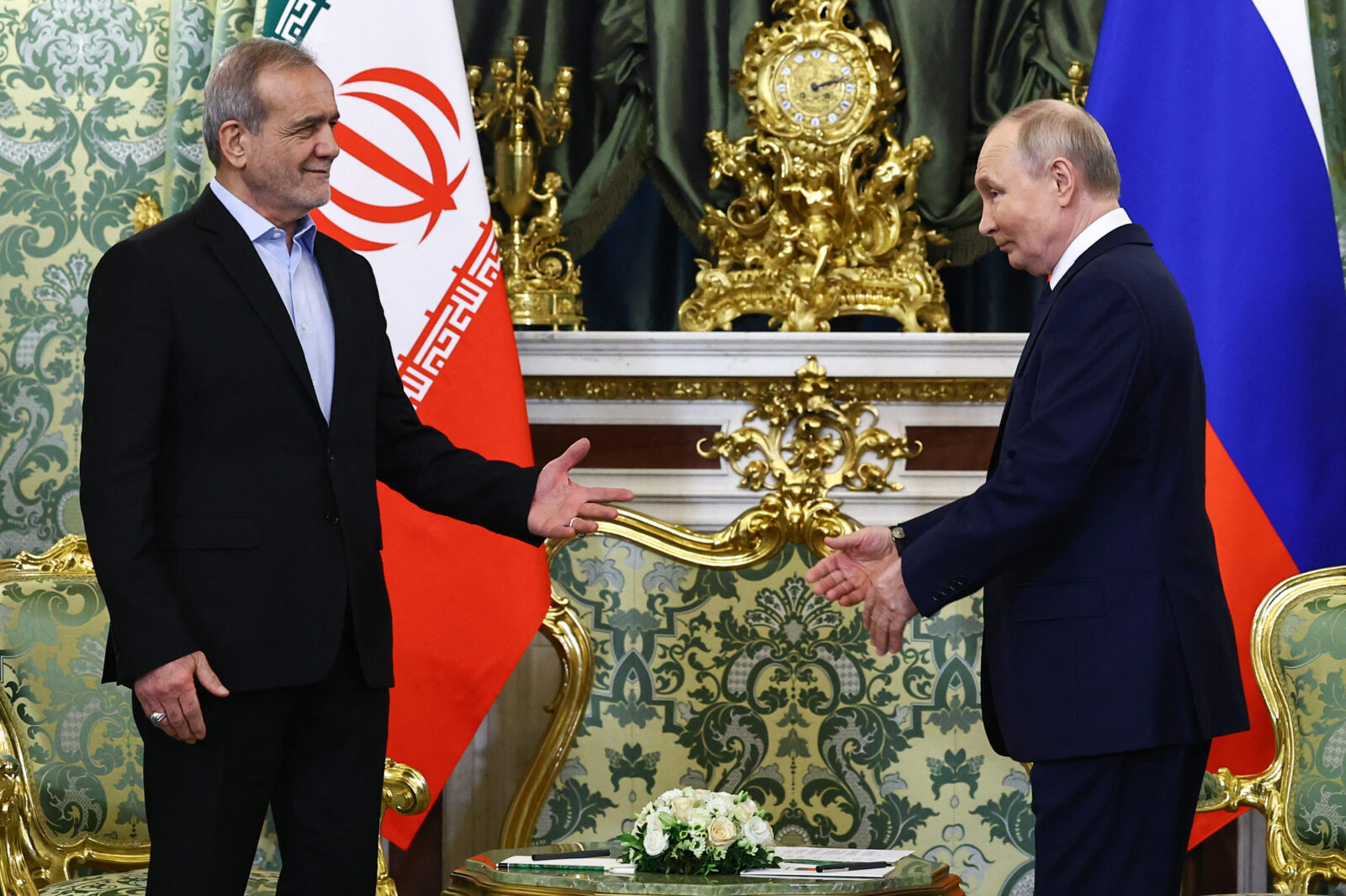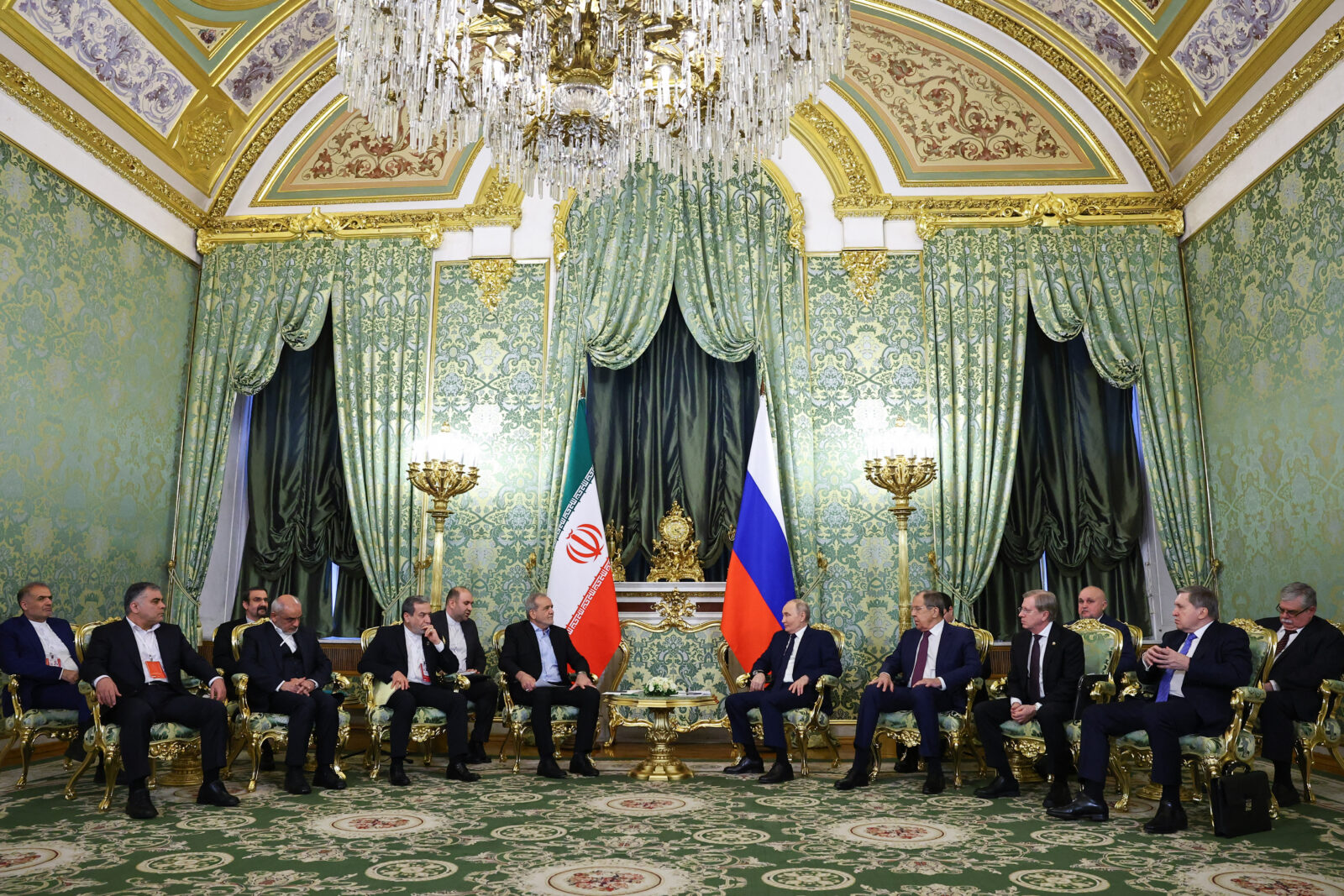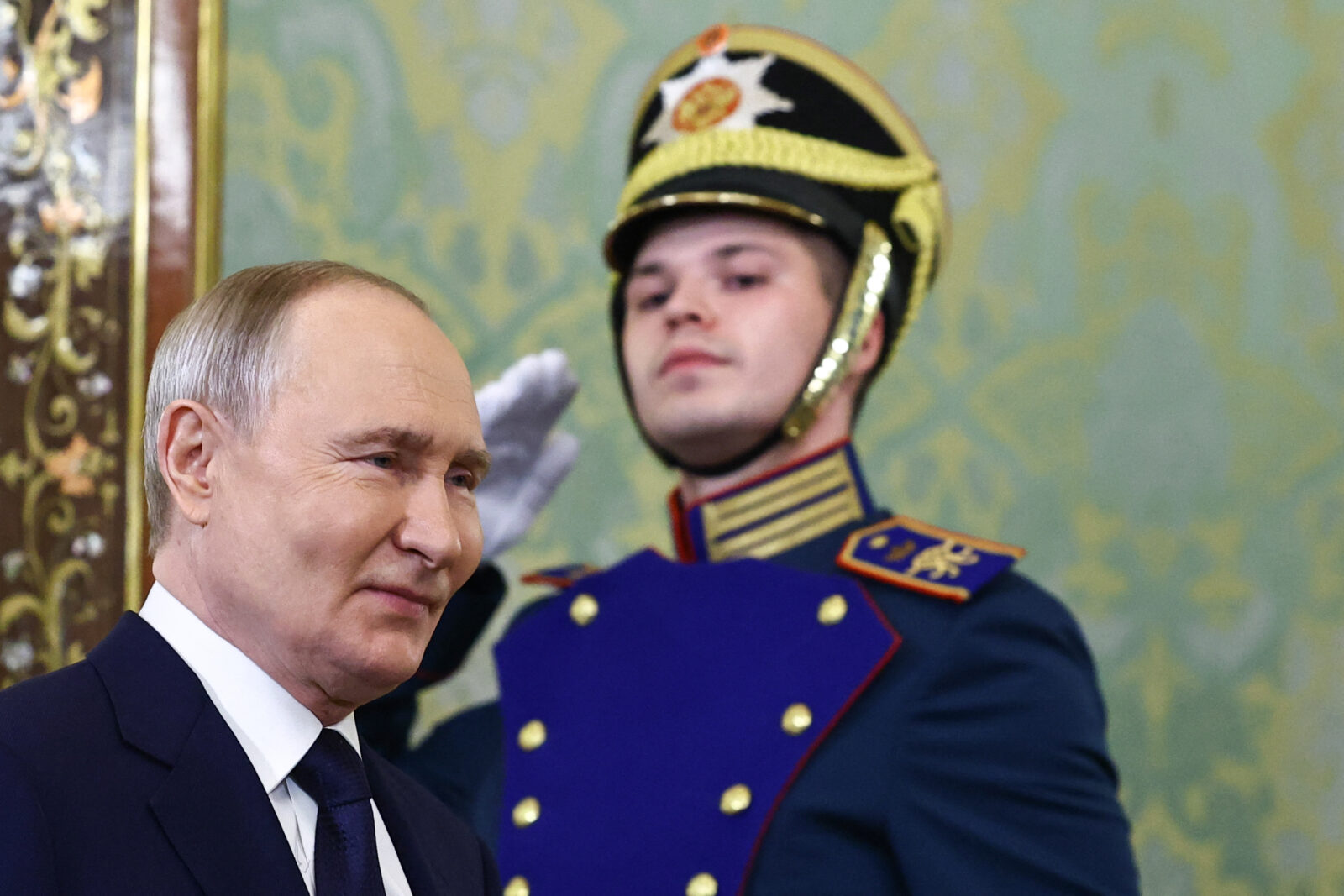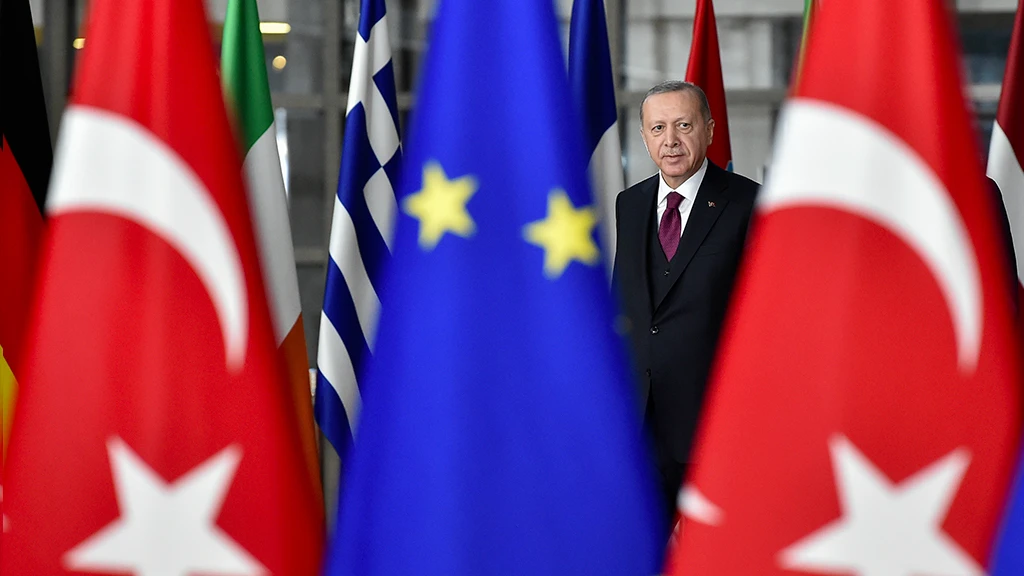Russia, Iran to sign treaty without mutual defense clause
 In this pool photograph distributed by the Russian state agency Sputnik, Russia's President Vladimir Putin and Iranian President Masoud Pezeshkian meet at the Kremlin in Moscow on January 17, 2025. (AFP Photo)
In this pool photograph distributed by the Russian state agency Sputnik, Russia's President Vladimir Putin and Iranian President Masoud Pezeshkian meet at the Kremlin in Moscow on January 17, 2025. (AFP Photo)
Russia and Iran are poised to sign a significant treaty on Friday to solidify their military and economic ties, but Tehran has ruled out the inclusion of a mutual defense clause, a move that sets this agreement apart from other recent pacts signed by Moscow.
The treaty, which has been under negotiation for years, aims to deepen cooperation between two nations facing heavy Western sanctions. While the full details remain undisclosed, the Kremlin has emphasized that the pact will enhance “military-political and trade-economic” relations.

Tehran’s decision to exclude a mutual defense provision—featured in Russia’s 2022 agreement with North Korea—was confirmed by Iranian Foreign Minister Abbas Araghchi. The clause’s absence suggests a strategic choice by Iran to maintain flexibility in its military alliances while still pursuing closer ties with Moscow.
“This will give us the opportunity to give additional momentum to almost all areas of cooperation,” Russian President Vladimir Putin said during a meeting with Iranian President Masoud Pezeshkian ahead of the signing. Pezeshkian praised the treaty as a “solid foundation” for bilateral relations.
Iran, Russia agrees on 20 years of partnership
The agreement, reportedly valid for 20 years, replaces a 2001 treaty that has been periodically renewed. Its signing underscores the growing partnership between Russia and Iran, driven by their shared status as targets of Western sanctions and geopolitical isolation.

Iran has already supplied Russia with self-detonating Shahed drones, which Western and Ukrainian officials say have been used in Moscow’s ongoing assault on Ukraine. Both nations have also expanded their trade in response to international economic pressures.
Despite its scope, the treaty is “not directed against any country,” Russian Foreign Minister Sergei Lavrov said earlier this week, describing the pact as “constructive in nature.”
Iran , Russia deal’s strategic implications
Tehran’s decision to omit a mutual defense clause may reflect its focus on economic and political collaboration rather than binding military commitments. The agreement is also part of a broader effort by Russia to deepen ties with nations such as Iran, China, and North Korea to counter U.S. influence on the global stage.

The timing of the treaty is significant, coming just days before the inauguration of Donald Trump, a vocal critic of Iran. During his first term, Trump withdrew the U.S. from the 2015 nuclear agreement and ordered the assassination of Iranian Gen. Qasem Soleimani. His return to power has raised concerns of renewed tensions in the Middle East.
Putin and Pezeshkian are scheduled to hold a joint press conference following the signing, where they are expected to outline the treaty’s goals and implications.



